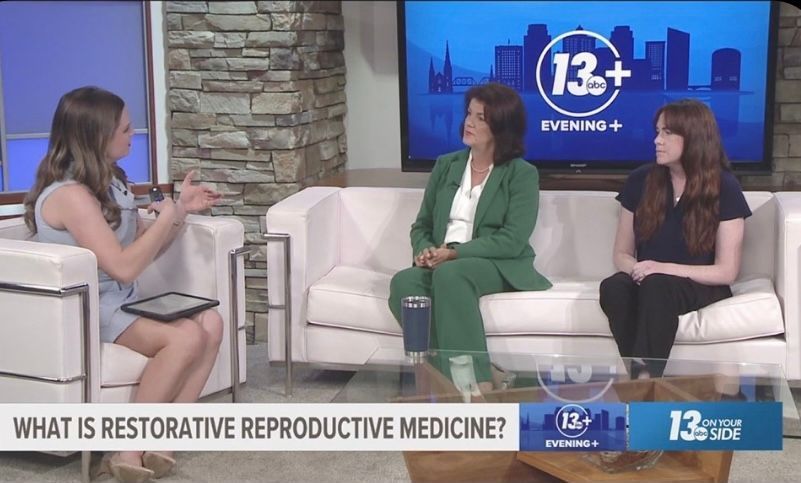Migraine Headaches
Migraine headaches are a leading cause of disability worldwide, experienced by up to 12% of people in the United States. Many people inherit migraines due to genetics; in fact, 90% of those with migraine have family members who also suffer from this disorder. So, what is a migraine, and how does it differ from other common types of headaches?
What Makes A Migraine Different?
Migraine headaches often last 4-72 hours and are described as moderate to severe throbbing or pulsing pain on one side of the head. These headaches may not respond as easily to common over-the-counter medications like acetaminophen or ibuprofen, and many people with migraine find relief by lying down in a dark, quiet room Symptoms of a migraine include:
- sensitivity to light, sound, smells
- nausea and/or vomiting
- pain worsens with exercise or physical activity
- migraine interferes with work, school, or home life
One in four migraine sufferers experiences migraine with aura, which is a change in vision, hearing, speech, feeling, or movement before or during the headache. Many migraine attacks also can be associated with allodynia, the feeling of pain from something that is not usually painful like brushing their hair. Migraine attacks can be an emotional experience. If you’ve experienced two or more of the symptoms above during headaches, talk with your healthcare professional about whether you may be experiencing migraine headaches.
Common Migraine Triggers
The majority of migraine sufferers identify specific triggers of migraine attacks. The most common triggers include emotional stress, hormonal fluctuations (in women), skipping meals, alcohol consumption, sleep changes or disturbances, strong odors, weather changes, and specific foods.
In one study, 65% of female participants identified menstrual cycle or hormonal changes associated with puberty, pregnancy, postpartum, or menopause as a migraine trigger.1 This is significant since 80-85% of people who suffer from migraines are women. While hormone changes may seem like an “uncontrollable” trigger, this is actually a very helpful piece of information to share with your healthcare professional. This is true especially if you are noticing irregular patterns in your menstrual cycles, planning to become pregnant, or approaching menopause. Recording specific migraine triggers will help create the most appropriate plan for you, including lifestyle changes and therapies that work for your migraine type and frequency.
How Can I Tell If A Headache Is Not A Migraine?
The most commonly distinguishing factors between migraines and other types of headaches, like cluster headaches or tension headaches, are:
- other headaches tend to improve with some level of activity
- other headaches may more often be bilateral, not as commonly throbbing
- other headaches are less associated with nausea/vomiting, sensitivity to light or sound
If you are unsure about what kind of headache you are experiencing, or if you are experiencing new headache symptoms, schedule an appointment to review your symptoms.
How Are Migraine Headaches Treated?
Migraine headaches may be treated in a number of ways. It is important to find therapies that work well with a person’s life and reduce both the frequency and severity of migraine attacks. Some therapies are listed below.
Lifestyle changes: Lifestyle changes may not eliminate migraines completely, but instead prevent more frequent attacks. Health coaching is a great way to implement these changes. Things to consider: hydration, sleep, caffeine intake, personal food triggers, daily or chronic stress, exercise, and mood and mental health. Consider keeping a diary of personal migraine triggers. Examples of triggers may include drinking red wine, smelling certain perfumes, or looking at car headlights at night.
Preventive medication therapy: Some medications are taken or administered to prevent migraines from occurring. Many preventive medications are off-label, meaning they are indicated for other disorders such as seizure or depression, but are found to be effective for migraine. These can take a few weeks to become effective in preventing migraine frequency.
Acute medication therapy: Some medications work to stop the migraine in its tracks. There are many classes of acute medications. Well-known medications include over-the-counter-medications like acetaminophen or ibuprofen, and the many different triptans.
Supplementation: There is some evidence that daily supplementation with magnesium oxide can help prevent migraine headaches. Additionally, recent evidence shows that daily supplementation with riboflavin (vitamin B2) can also be helpful for preventing migraines. Of note, high dosing of riboflavin is not considered safe while breastfeeding.
Complementary therapies: There is growing data that other complementary therapies help to prevent migraine attacks, though not all are safe in pregnancy and breastfeeding. Some of these therapies include Botox injections, acupuncture, and routine massage therapy.
Are Migraine Medications Safe During Pregnancy Or If I Am Trying To Conceive?
About 80-85% of women experience improvement in migraine frequency and severity during pregnancy. However, some women continue to experience migraines during pregnancy. Some migraine medications are not safe if you are trying to get pregnant. These include topiramate, valproate, and the newer antibody therapies, among others. If you are taking a preventive medication or other migraine medication, discuss this with your healthcare professional before getting pregnant. Click here to learn more about migraines in pregnancy.
Migraines And Menstruation
Not every woman who experiences migraine will experience menstrual-related migraines. Some women are more prone to migraine in the few days leading up to their period, or in the few days following when the period begins. Menstrual-related migraines are thought to be due to fluctuating levels of estrogen in the body. They may or not be accompanied by aura, which is defined as visual, hearing, speech, feeling, or movement changes associated with migraine headache.
A great way to plan ahead for menstrual migraines is to begin cycle charting with a fertility awareness based method.Some women find this helpful because they can begin preventive medications during the luteal phase (phase following ovulation) and stop these medications a few days after their period starts.
There is growing evidence that nutrition may also contribute to a woman’s experience of menstrual migraine. If menstrual migraines are associated with constipation, diarrhea, or a diagnosis of IBS, consider keeping a food diary and working with a nutritionist to work on ways to promote better overall health.
Migraines And Menopause
1. The average age of menopause, defined as one full year without a menstrual period, in the United States is 51 years old. The average age that migraine attacks discontinue in migraine sufferers is 50! Coincidence? Likely not. Around the age of menopause, women experience both hormone and lifestyle changes that may play a role in the reduction or cessation of migraine headaches. However, some women do experience an increase in migraines in the time period just before menopause known as perimenopause. Here’s what you need to know:
2. The severity of hot flashes, flushes, and night sweats in menopause may predict migraine severity in menopause. Hormone therapy (previously known as hormone replacement therapy) for perimenopausal symptoms may be considered, even in women with migraine! It is a myth that women who experience migraine cannot consider hormone therapy.
3. Similarly to during puberty, perimenopause may mark a period of irregular menstrual cycles and increased premenstrual syndrome symptoms. If a woman experiences menstrual migraine, perimenopause can make migraine attacks challenging to predict.
4. Cycle charting can help target migraine therapies during this period of time.
5. Lifestyle factors are always an important element of managing migraine, no matter age and stage of life.
If you experience the first migraine of your life after 50 years old, it is important to schedule an appointment with your physician or other healthcare professional! This is not common and may warrant further investigation.
Final Note
There are some red flags associated with headaches for every person to be aware of. Some of these include experiencing the “worst headache of your life,” changing symptoms or patterns of your headache, headaches no longer responding to your treatment or medication, or new or severe headaches in pregnancy. At Reply, we are available to discuss your questions and concerns. Schedule an appointment with us online or call us at 919-230-2100 to connect with one of our physicians or nurse midwives.
Do you have specific questions about migraines? Click here to securely submit your question to our provider team. We will continue to answer them across our social media channels and here on our website.
Resources
The Triggers or Precipitants of Acute Migraine Attack, L. Kelman https://pubmed.ncbi.nlm.nih.gov/17403039/?from_single_result=17403039&show_create_notification_links=False
American Migraine Foundation https://americanmigrainefoundation.org/
Move Against Migraine: A Podcast by the American Migraine Foundation, Dr. Larry Newman











